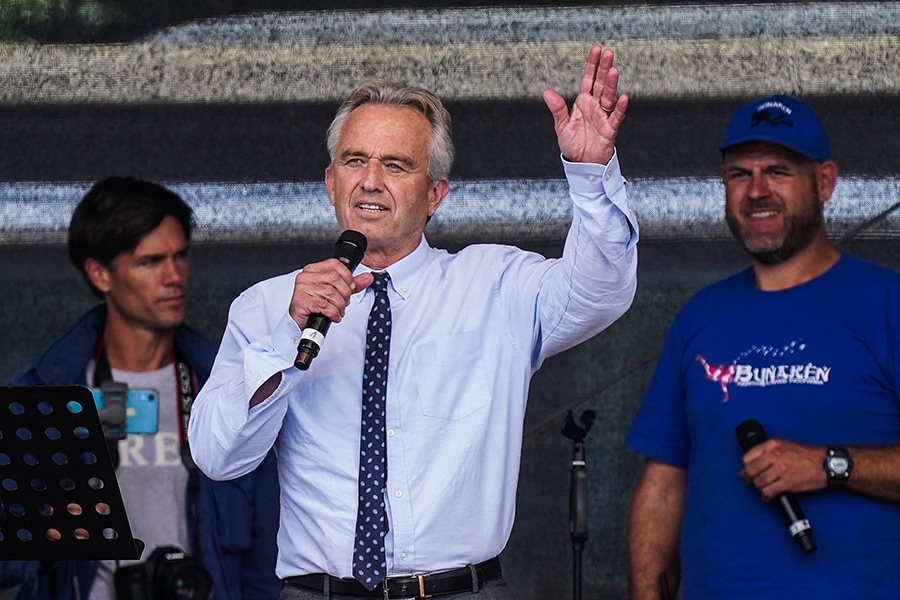
YouTube bans all anti-vaccine misinformation
YouTube said it would remove videos claiming that vaccines do not reduce rates of transmission or contraction of disease, and content that includes misinformation on the makeup of the vaccines
 YouTube said it was banning the accounts of several prominent anti-vaccine activists from its platform, including Robert F. Kennedy Jr.’s; Image: Sean Gallup/Getty Images
YouTube said it was banning the accounts of several prominent anti-vaccine activists from its platform, including Robert F. Kennedy Jr.’s; Image: Sean Gallup/Getty Images
YouTube said Wednesday that it was banning the accounts of several prominent anti-vaccine activists from its platform, including those of Dr. Joseph Mercola and Robert F. Kennedy Jr., as part of an effort to remove all content that falsely claims that approved vaccines are dangerous.
In a blog post, YouTube said it would remove videos claiming that vaccines do not reduce rates of transmission or contraction of disease, and content that includes misinformation on the makeup of the vaccines. Claims that approved vaccines cause autism, cancer or infertility or that the vaccines contain trackers will also be removed.
The platform, which is owned by Google, has had a similar ban on misinformation about the COVID-19 vaccines. But the new policy expands the rules to misleading claims about long-approved vaccines, such as those against measles and hepatitis B, as well as to falsehoods about vaccines in general, YouTube said. Personal testimonies relating to vaccines, content about vaccine policies and new vaccine trials, and historical videos about vaccine successes or failures will be allowed to remain on the site.
“Today’s policy update is an important step to address vaccine and health misinformation on our platform, and we’ll continue to invest across the board” in policies that bring its users high-quality information, the company said in its announcement.
In addition to banning Mercola and Kennedy, YouTube removed the accounts of other prominent anti-vaccination activists such as Erin Elizabeth and Sherri Tenpenny, a company spokesperson said.
©2019 New York Times News Service







